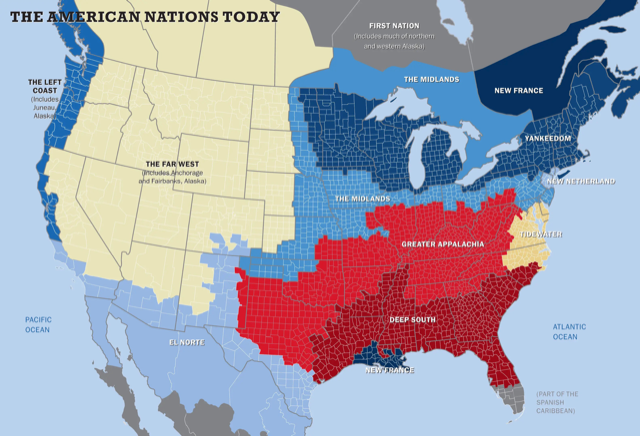GENERAL MICHAEL HAYDEN
OPINION — I was a Brigadier General 30 years ago, assigned in Europe as the head of intelligence. Most of the time I was looking at the Balkans because there was a war going on. Yugoslavia lasted for 72 years and then it was gone; it fell apart.
These were bitter rivalries. Many people were killed. There were multiple civil wars. It lasted 10 years; it’s hard to say, but we think 130,000 to 140,000 actually died. The hardest hit was Bosnia where maybe 100,000 people died, mostly Bosniaks (Muslims). Sarajevo in Bosnia had hosted the Olympics just a few years before.
I went to Sarajevo many times. It was a modern city. It was small and picturesque, on the banks of the Miljacka river.
The First World War began in Sarajevo. And in the 1990s, war returned. Sarajevo was a war zone. And I was in Bosnia, watching it happen. What was going on? Why were they doing this?
I could see artillery pointing down from the wooded hills and I witnessed the destructive product of their work in the streets below. I wondered what manner of man could pull the lanyard to fire on his former neighbors or shoot at unarmed civilians lined up for scarce water at a shuttered brewery.
What struck me most though, when I walked through the city, was not how much Sarajevans were different from the rest of us, but how much they weren’t. This had obviously been a cultured, tolerant, even vibrant city. The veneer of civilization, I sadly concluded then, was quite thin.
Now, 30 years later, I worry about the United States, not Sarajevo. The Cato Institute and Freedom House rank every country for personal, economic and human freedom. The worst is Syria; it’s in last place. There are others: North Korea, Eritrea, China, Turkmenistan, Iran, Cuba.
How about the United States? It’s not good.
The US earned 83 out of 100 possible points this year, an 11-point drop from its 94 of a decade ago. The US has fallen to a new low for political rights and civil liberties, unequal treatment of minority groups, damaging influence of money and increased polarization.
There are real problems with partisan pressure on the electoral process, criminal justice, immigration, asylum seekers and disparities in wealth. There are also problems with discrimination based on race, ethnicity and gender.
The Cipher Brief hosts private briefings with the world’s most experienced national and global security experts. Become a member today.
The United States for the first time, was added to a list of “backsliding democracies” in a report by the Stockholm-based International Institute for Democracy and Electoral Assistance.
In the United States, some 150 top scholars of U.S. democracy warn that attacks on the “legitimacy of America’s elections” has grown to a crisis point.
A Pew Research Center survey released this month said, “Very few in any public surveyed think American democracy is a good example for other countries to follow.” Almost 60% voiced U.S. democracy “used to be a good example but has not been in recent years.”
Other truth tellers—scholars, journalists, scientists, intelligence to name a few—preserve the commitment and ability of our society to base important decisions on their best judgment of what constitutes objective reality. They deal in objective reality and truth. If our society loses the ability to separate fact from fiction, truth from disinformation, we are lost as a functioning democracy.
 American Nations: A History of the Eleven Regional Cultures in North America by Colin Woodard
American Nations: A History of the Eleven Regional Cultures in North America by Colin WoodardColin Woodard wrote his prescient 2011 book, American Nations: A History of the Eleven Rival Regional Cultures of North America. He really worried about America. I didn’t realize that before, but I should have. There are a lot of differences in America. One country or maybe several. I don’t know.
In the deep South, most people go to church. But in New England, Yankeedom, not so much. The Far West, they like their guns. But in New Netherlands (New York City), they want to restrict them.
Even in Virginia and most of the south, they always talk about the Civil War. Should Confederate monuments be left in place or removed? Democrats say they should remove them—almost 90% agree. Republicans disagree. More than 80% say it’s fine to leave them in place.
And there’s the election. Biden won, but more than a year later, many still don’t believe it. According to a November 2021 poll, 68 percent of Republicans believe the election was “stolen” from Donald Trump.
Go beyond the headlines with expert perspectives on today’s news with The Cipher Brief’s Daily Open-Source Podcast. Listen here or wherever you listen to podcasts.
Right before the Civil War, we had similar problems. I thought that was finished. Now I know, it’s not.
The historian, Woodard, said this recently: “I knew the country was brittle and if we kept going down the road we’re on, that there would be trouble ahead, but it’s the speed at which it’s happened”
Ten years after the Civil War, Ulysses S. Grant said if there was a problem, “I predict that the dividing line will not be Mason and Dixon’s but between patriotism and intelligence on the one side, and superstition, ambition and ignorance on the other.”
Charlottesville, police and protester clashes, a Capitol Hill insurrection, Lafayette Park, Black Lives Matter, the election, the big lie.
I am worried about our country, as I was about Bosnia 30 years ago. We have a fundamental issue. Can we solve it, or not?
No comments:
Post a Comment